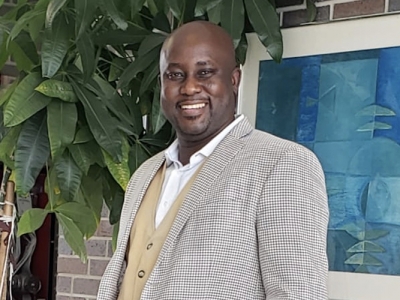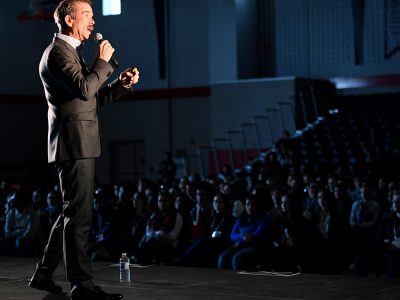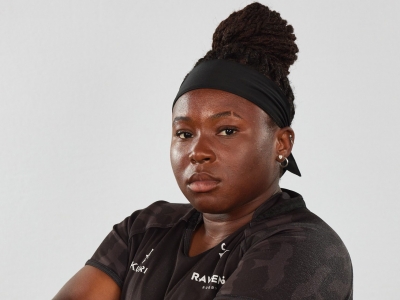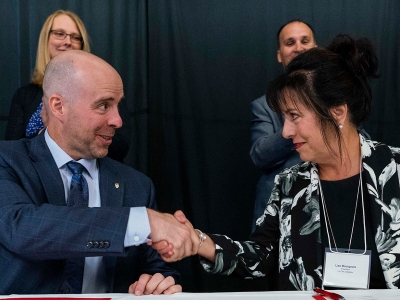By Matt Gergyek
Photos by Matt Gergyek
The late David Farr, a widely admired Carleton University History professor who spent over 50 years on campus, passed away in October 2016 at age 93.
But his memory and contributions to the Carleton community continue.
Farr has been honoured with a bench installed on campus, located on the pathway between Richcraft Hall and the Rideau River, cementing Farr’s status as an eternal staple of Carleton University.
“The bench symbolizes more than anything David’s devotion to Carleton,” says Duncan McDowall, a close friend and colleague of Farr.
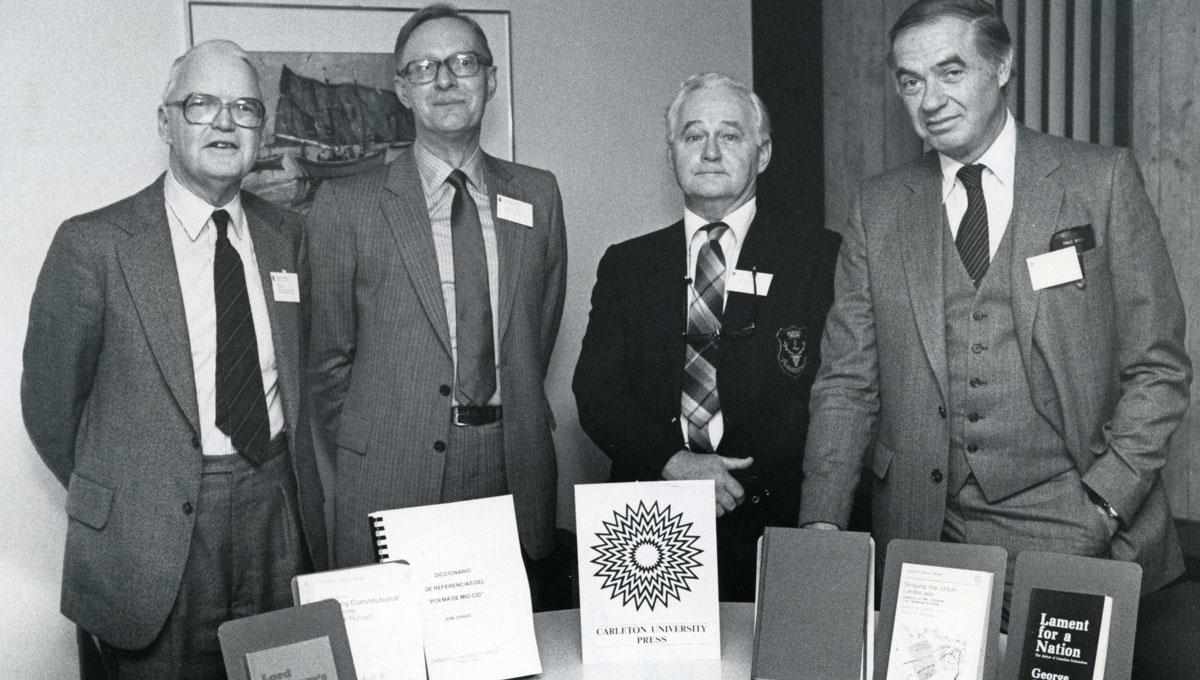
David Farr (far left) at a gathering of the Carleton University Press in 1970
Farr’s life was a colourful and ample one — he was born and grew up in British Columbia in the 1920s. From there, he fought in the Second World War, studied at the University of British Columbia, the University of Toronto and Oxford University, and married Joan, his wife of 70 years. They had three children, six grandchildren and four great-grandchildren.
In 1947, just five years after Carleton was born, the budding historian came to the university’s precursor, Carleton College, located on First Avenue. He spent 40 years teaching and researching on campus, focusing on colonial history, Canadian history and Canadian legal-political history.
While at Carleton, Farr became the chair of the History Department, dean of the Faculty of Arts and director of the former Paterson School of International Programs.
“He was a builder of Carleton,” McDowall says.
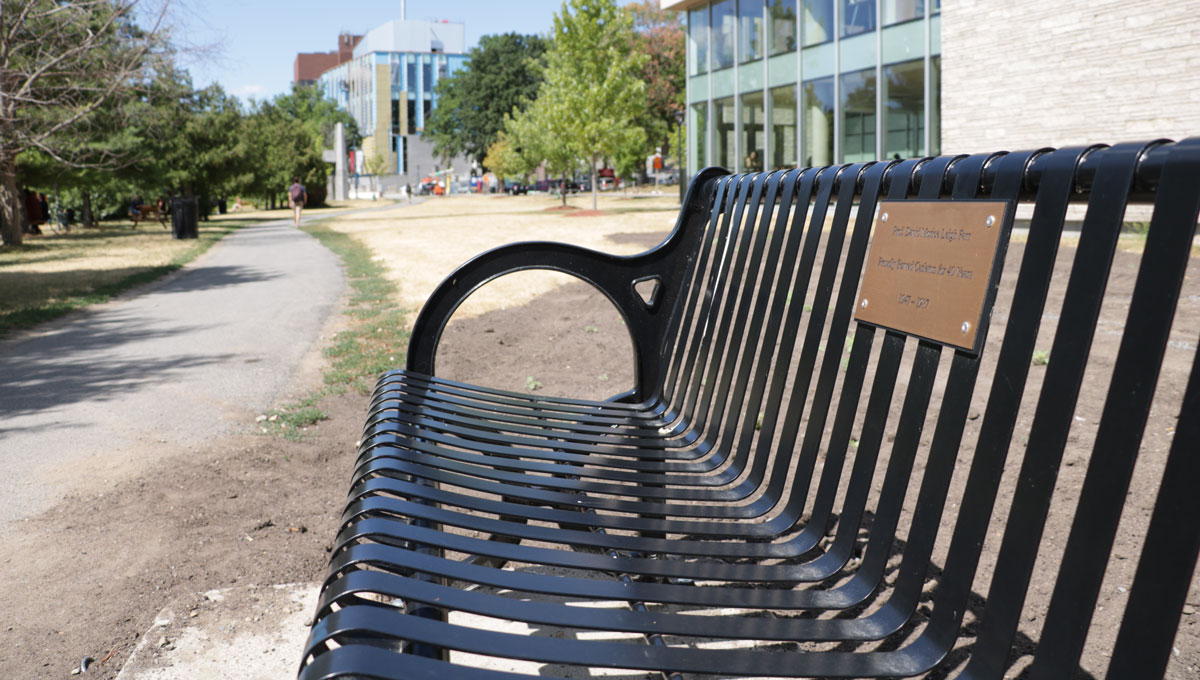
David Farr Maintained a Strong Presence at Carleton
Even after officially retiring in 1987, Farr maintained a strong presence on campus, a sort of “welcoming office on his own,” says Dominique Marshall, current chair of Carleton’s History Department.
“He was the most faithful retired colleague you can imagine,” she adds. “Every time a new faculty member was hired, he would have lunch with them to chat about their interests, their work.”
McDowall first met Farr in a similar way — he arrived at Carleton in the 1970s to pursue a graduate degree in history.
“David would come by our office and ask what us graduate students were studying,” he says.
Their friendship truly blossomed when McDowall chatted with Farr about his thesis on the Canadian steel industry, “about as distant from his research as you can get,” McDowall says, but came back to his office a week later to find an envelope from Farr with information on the exact topic.
“[History] is supposed to be about exploring and being curious and David was the epitome of that,” he says. “He had a wonderful humanity to him … you felt a warmth from being around him.”
In 2002, Farr received an honorary Doctor of Laws from Carleton at Spring Convocation, where he gave a memorable address to graduates – passing on all the advice he had picked up on his journey through life.
Understanding Diverse Points of View
Farr encouraged the graduates to try and understand other people’s point of view, even if it is hard to swallow, and pushed the students to make their own path in life while recognizing the achievements and hard work of others. He also touted the importance of good communication and writing skills in any discipline.
“As you go out into the world remember Carleton, speak well of it and cherish it … you are inheritors of a proud tradition,” he said in his speech.
Many of Farr’s papers have been collected and are now stored in Carleton’s Archives and Research Collections.
In the last few years of his life, McDowall says Farr maintained his powerful sense of curiosity and inquisition.
“In their old age, some people get sour and cynical, but David never got like that,” he says. “He was always reading, always questioning, always enjoying life. It was like knowing a 30-year-old in his 80s.”
